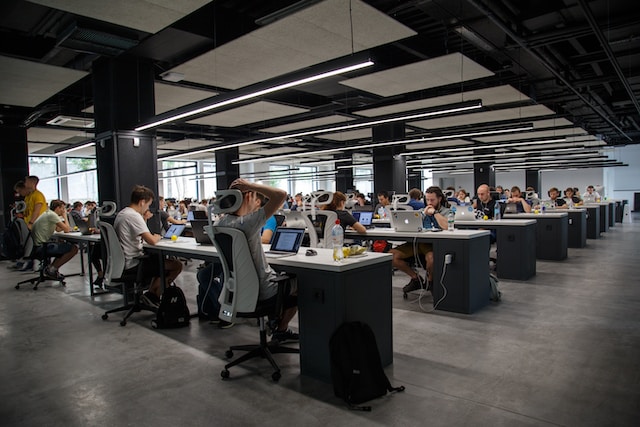
In the modern age of flexible working conditions and digital nomadism, the way we view traditional office spaces is changing. Amongst the numerous innovations arising from this shift, one concept stands out in particular: hot-desking. Increasingly embraced by organisations throughout the United Kingdom, hot-desking represents a dynamic and efficient approach to office management and organisation that not only redefines our understanding of the workspace but also presents a compelling range of benefits for both employees and employers alike.
Hot-desking involves employees sharing communal desks and workspaces instead of having assigned personal desks. This practice capitalises on the realities of contemporary work schedules, where not all employees are present in the office simultaneously. Thus, hot-desking ensures that office space is used more effectively, reducing unnecessary overheads while encouraging a fluid, flexible, and collaborative workspace.
As hot-desking continues to gain momentum in the UK, businesses are seeking reliable avenues to find appropriate spaces to implement this strategy. This is where Prime Office Space steps into the picture. As a leading office brokerage service in the UK, Prime Office Space provides an unparalleled database of available office spaces – one that includes numerous options perfectly suited for hot-desking. With expert consultants at your service, we can assist you in finding the ideal space that meets your organisation’s specific hot-desking requirements.


